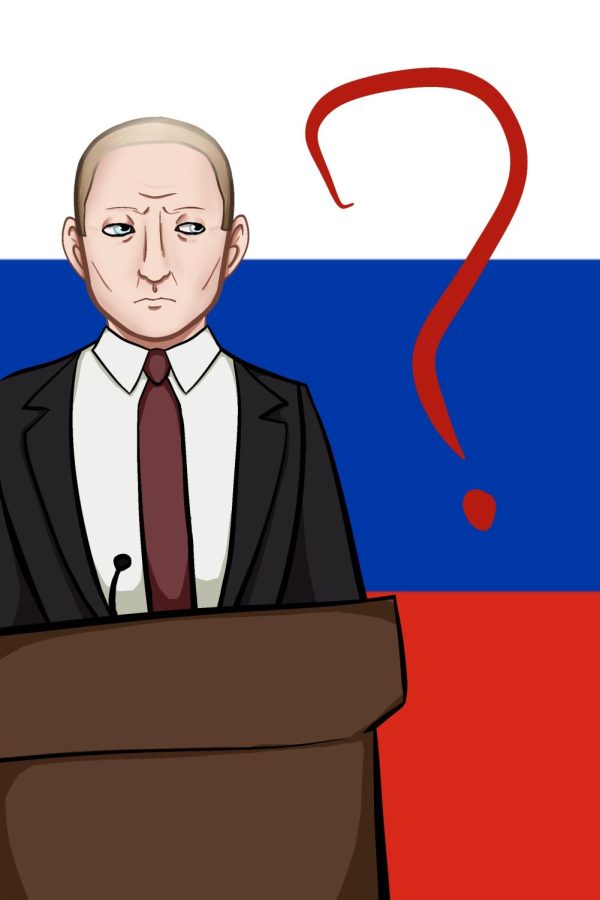Foley Talk: Important to address context surrounding Ukrainian-Russian war
Understanding the “why” behind conflict essential to understanding conflict itself
Russian President Vladimir Putin’s invasion of Ukraine raises questions about his motives.
February 25, 2022
Hosted by the Thomas S. Foley Institute for Public Policy and Public Service, Thomas Preston was chosen to speak yesterday in the first in-person Foley Talk on the ongoing Ukrainian-Russian conflict. The presentation was also streamed and can still be accessed via the Foley Institute Youtube.
Preston focused on understanding the “why” behind Russian President Vladimir Putin’s recent decision to invade Ukraine, alongside his previous policy choices towards the country and the North Atlantic Treaty Organization.
Overall, I really enjoyed the presentation. Preston is an expert in his field with experience as a policy consultant for the U.S. government, academic and professor in Russian affairs and political science, and it showed in the argument he made.
The presentation outlined something that has been incredibly frustrating for me watching the coverage of the conflict, a complete lack of understanding of Russia’s point of view. Importantly, I am not saying this to be a Russian apologist, as what they are doing in Ukraine is both horrible and illegal.
Rather, it baffles me to hear people think that the invasion and the proceeding posturing from Russia came out of the blue. It feels like news agencies, some policymakers and parts of the American public are lacking the essential context that would complete their understanding.
“Anyone surprised at a lot of what he has been saying over the last few days or weeks just hasn’t been listening to Putin,” Preston said.
Throughout the entire negotiation process, Putin made it clear that his line in the sand was Ukraine joining NATO. We chose, for better or worse, the ideological victory of keeping the option open for Ukraine, a moral victory for us though leaving Ukraine to foot the bill.
Putin’s anger over the expansion of NATO is not a new concept, though. He has been constantly pushing against what he sees as encroachment on the Russian sphere of influence.
Preston laid it out well in the presentation, explaining that for Russia, Ukraine joining NATO is an existential threat to their national security.
From the American government’s perspective, this assertion seemed ridiculous, but in that assertion we failed to understand the Russian viewpoint in context. We do not need to agree with the viewpoint but understanding it allows us to make informed decisions about how to address it.
Preston’s Foley talk was informative and provocative and in many ways should help us refocus how we view policy and international issues in the future, not just with the Ukrainian-Russian War.
Due to the nature of our media system, educational track and seemingly our attention spans, most political issues only receive a small amount of spotlight before some new thing grabs our attention. Often what little coverage there is on an event fails to take in that context and ask the important question of “why” it is happening.
As consumers of world news and as voters, we need to be able to answer that question when it comes up. For the Ukrainian-Russian war, understanding the rationale that led to Putin’s decision to go to war is essential in understanding the conflict itself.
Looking from, for example, the Russian perspective does not mean you have to agree with what they are doing. The invasion of Ukraine is a horrible thing that should be widely condemned by the international community. But being more informed on an issue and understanding the root causes is important.
These events never happen in an isolated vacuum. Looking for the historical context and the political groundwork that was laid years before.
An easy way to combat the misinformation and fear-mongering that is being spread is to become informed on the “why” behind policy decisions and understand why context is always key.











